
Discover the Best AI Tools to Boost Your Productivity
Find the Best AI Tools to Optimize Your Work and Personal Tasks
Best Science & Engineering AI Tools in 2024
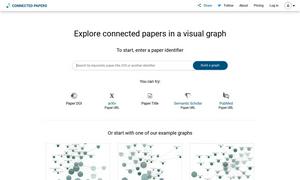
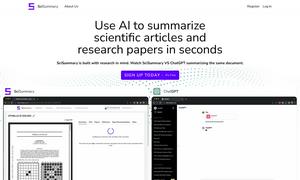
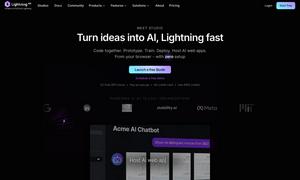
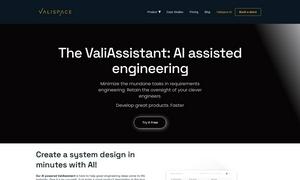
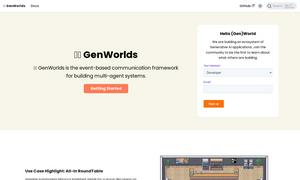

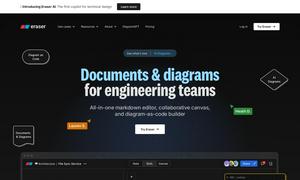
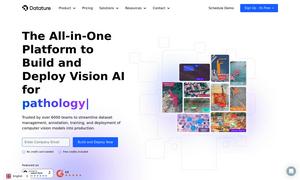
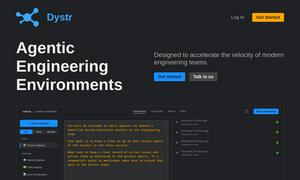
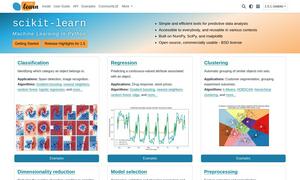
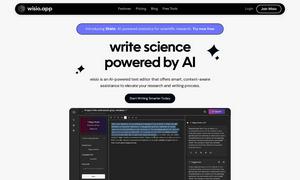





What is Science & Engineering
The Science & Engineering Category in the AI Directory serves to showcase advanced tools, technologies, and platforms designed for professionals in scientific research and engineering disciplines. This category enhances accessibility to innovative AI solutions, streamlining workflows, and improving project outcomes, providing significant advantages in productivity and efficiency.
How Science & Engineering works
The Science & Engineering Category works by aggregating a diverse range of AI tools and technologies that address sector-specific challenges. Users can navigate through categorized tools based on their needs, whether for data analysis, modeling, simulation, or automation. By selecting relevant tools, users can integrate these AI solutions into their projects, following best practices for implementation and maximizing utility. The process typically involves exploring available tools, assessments of features, and hands-on application to address scientific and engineering challenges effectively, enhancing both productivity and project accuracy.
What are the advantages of Science & Engineering?
The advantages of the Science & Engineering Category lie in its ability to centralize access to a multitude of AI resources tailored to the needs of research and engineering professionals. This category significantly improves efficiency by providing tools that facilitate data analysis, automation, and predictive modeling. Additionally, it allows users to stay ahead of technological trends, enhancing project outcomes through innovative applications and solutions that deliver substantial value and practical benefits in their work.
Key Features for Science & Engineering
AI-Powered Data Analysis Tools
AI-powered data analysis tools are a standout feature of the Science & Engineering Category, offering researchers sophisticated algorithms that process vast datasets efficiently. These tools provide users in various fields with insights and predictive capabilities, improving decision-making and project outcomes through enhanced data interpretation.
Integration with Engineering Design Software
Integration with engineering design software is a crucial feature within the Science & Engineering Category. This functionality allows users to seamlessly incorporate AI tools into existing workflows, enhancing design processes, optimizing simulations, and ensuring compatibility with industry-standard applications for overall project efficiency.
Machine Learning for Predictive Modeling
Machine learning for predictive modeling is another key feature featured in the Science & Engineering Category. This functionality aids researchers in forecasting outcomes based on historical data, enabling them to make informed decisions and improve project accuracy while addressing complex challenges inherent in scientific exploration.
Use Cases for Science & Engineering?
Typical use cases for the Science & Engineering Category involve scenarios such as modeling complex systems in engineering projects, conducting high-throughput analysis in scientific research, and automating repetitive tasks that free up time for innovative exploration. The tools featured can solve specific challenges, such as improving the accuracy of simulations, enhancing collaboration among research teams, and enabling real-time data processing for timely decision-making. Users find that these applications address both immediate project needs and long-term innovation strategies.
FAQs for Science & Engineering
What benefits does the Science & Engineering Category offer to researchers?
The Science & Engineering Category offers numerous benefits to researchers, including access to specialized AI tools designed to improve efficiency in data analysis, modeling, and simulation. By leveraging innovative technology within this category, researchers can enhance their productivity, streamline workflows, and ultimately achieve better research outcomes.
How does AI improve engineering workflows within this category?
AI enhances engineering workflows by providing tools that automate repetitive tasks, optimize designs, and facilitate advanced simulations. In the Science & Engineering Category, users can find solutions that integrate seamlessly with existing engineering software, thereby improving productivity and accuracy while allowing engineers to focus on innovative problem-solving.
What unique features does the Science & Engineering Category provide for data analysis?
The Science & Engineering Category provides unique features for data analysis, including AI-powered algorithms that can handle massive datasets and extract actionable insights. These features enable researchers and engineers to analyze trends accurately, forecast outcomes, and enhance the quality of their findings through advanced data processing techniques.
What competitive advantages does the Science & Engineering Category offer?
The competitive advantages of the Science & Engineering Category include access to state-of-the-art AI tools tailored for scientific and engineering applications, which help professionals stay ahead of technological advances. Furthermore, these tools enhance collaboration and provide innovative solutions that address specific industry challenges effectively.
How does the Science & Engineering Category meet specific user needs?
The Science & Engineering Category meets specific user needs by offering a curated selection of AI resources that address the unique challenges faced in various scientific and engineering fields. By providing innovative solutions for data analysis, modeling, and simulation, it empowers professionals to enhance their efficiency and achieve remarkable outcomes.
How do users interact with the tools in the Science & Engineering Category?
Users interact with the tools in the Science & Engineering Category by exploring the extensive options available based on their specific projects or research needs. Through intuitive interfaces and detailed descriptions, users can assess the relevance of each tool, facilitating seamless integration and application within their scientific and engineering workflows.




























